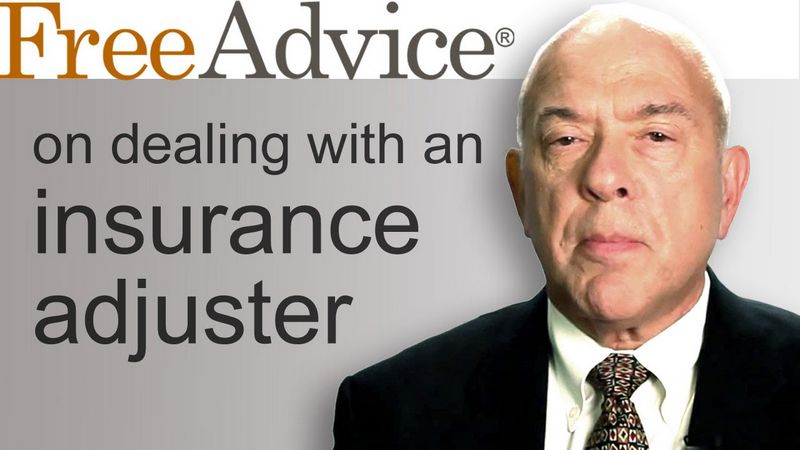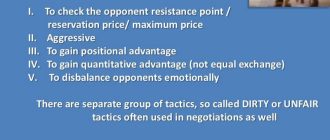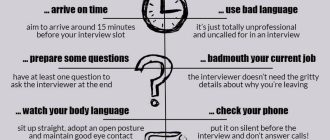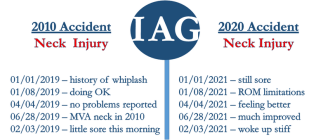
The Art of Getting More Money from Your Insurance Adjuster.
Getting the most out of your insurance claim can be an art form. It takes skill, knowledge, and strategy to negotiate with your insurance adjuster and ensure you receive the money you deserve. At Insurance Experts, we have decades of experience helping clients maximize their claims and walk away with more money in their pockets.
“Money doesn’t grow on trees, but it can grow in your insurance claim.”
Our team of expert adjusters knows the ins and outs of the insurance industry. We understand the language, tactics, and loopholes that insurance companies often use to undervalue claims. With our guidance, you can level the playing field and get the compensation you truly deserve.
Our proven strategies and tips will show you how to navigate the complex claims process and negotiate effectively with your insurance adjuster. From documenting your damages to presenting a strong case, we will teach you the art of maximizing your insurance claim.
Stop settling for less and start getting more. The money you need to repair your home, replace your belongings, or cover medical expenses is available – you just need to know how to ask for it. Let us be your guide in this artful journey.
Don’t let your insurance adjuster dictate your claim’s worth. Take control and learn the art of maximizing your insurance claim. Contact us at Insurance Experts today to schedule a consultation and get started on getting the money you deserve.
Understanding the Claims Process
When it comes to maximizing your insurance claim, it’s important to understand the claims process. By having a clear understanding of how the process works, you can navigate it more effectively and increase your chances of receiving more money from your insurance adjuster.
The art of maximizing your insurance claim starts with understanding the role of the insurance adjuster. An insurance adjuster is the person responsible for evaluating your claim and determining how much money your insurance company will pay out. It’s essential to build a good rapport with your insurance adjuster, as they have the power to approve or deny your claim and influence how much money you receive.
Once you’ve filed your claim, the claims process begins. This process typically involves several steps, including:
1. Investigation: The insurance company will conduct an investigation into the details of your claim. They may request additional documentation or evidence to support your claim.
2. Evaluation: The insurance adjuster will evaluate the information and evidence provided to determine the validity of your claim. They will assess the extent of the damages or losses and determine how much money should be paid out.
3. Negotiation: If you disagree with the initial offer made by the insurance adjuster, you have the right to negotiate. This is where your knowledge and understanding of the claims process can be advantageous. By presenting additional evidence or arguments, you can potentially persuade the adjuster to offer you more money.
4. Settlement: Once both parties agree on the amount of the settlement, the insurance company will issue a check for the agreed-upon amount. It’s important to carefully review the settlement agreement before accepting payment to ensure it is fair and covers all your losses.
In conclusion, understanding the claims process is essential for maximizing your insurance claim. By familiarizing yourself with the art of negotiation and building a good relationship with your insurance adjuster, you can increase your chances of receiving more money from your insurance company.
Gathering Documentation for Your Claim
When it comes to maximizing your insurance claim, one of the most important steps is gathering the right documentation. Good documentation can make the difference between getting the compensation you deserve and coming up short.
Here are some expert tips for gathering the necessary documentation:
- Insurance Policy: Start by reviewing your insurance policy to understand the coverage and limits on your claim. This will help you determine what documentation you need to support your claim.
- Incident Report: If applicable, file an incident report with the authorities or your insurance company as soon as possible. This report will serve as a crucial piece of documentation for your claim.
- Photographic Evidence: Take clear and detailed photographs of any damage or loss. These photos should be timestamped and include as much relevant information as possible. Visual evidence can strongly support your claim.
- Receipts and Invoices: Keep all receipts and invoices related to any expenses incurred as a result of the incident. This includes receipts for repairs, replacements, or temporary accommodations. These documents provide concrete proof of your financial loss.
- Witness Statements: If there were any witnesses to the incident, gather their contact information and ask for written statements describing what they saw. Witness statements can add credibility to your claim.
- Medical Records: If you sustained any injuries, gather all relevant medical records, including doctor reports, hospital bills, and prescription receipts. These records demonstrate the extent of your physical and financial damages.
Remember, the art of maximizing your insurance claim lies in the details. Take the time to gather all necessary documentation and present it in a clear, organized manner to your insurance adjuster. By providing them with more evidence, you increase your chances of receiving a fair and comprehensive settlement.
Consult with a trusted insurance professional who can guide you through the documentation process and help you navigate any challenges that arise. With their expertise and your commitment to thorough documentation, you can maximize your insurance claim and get the compensation you deserve.
Documenting Damage and Losses
In the art of maximizing your insurance claim and getting more money from your insurance adjuster, one crucial step is documenting the damage and losses incurred. This step is essential to ensure that you receive the full compensation you deserve.
When it comes to documenting your claim, thoroughness and attention to detail are key. Start by taking clear and detailed photographs of the damage or loss. Be sure to capture the extent of the damage from multiple angles, including close-ups of any significant issues. These photos will serve as visual evidence to support your claim and help your adjuster understand the full scope of the losses.
Along with photographs, it’s essential to keep a diligent inventory of items that were damaged or lost. List each item, including its estimated value and a brief description. If possible, provide proof of purchase or any documentation that supports the value you assign to each item.
Additionally, make sure to gather any other relevant documents, such as repair estimates, receipts for temporary accommodations, or medical records if the damages resulted in physical injuries. These documents will bolster your case and demonstrate the financial impact of the damage or loss.
Remember, the more comprehensive and organized your documentation is, the stronger your claim will be. By presenting clear and detailed evidence to your insurance adjuster, you increase your chances of receiving a fair settlement that adequately compensates for your losses.
In conclusion, documenting damage and losses is a crucial aspect of maximizing your insurance claim. By providing thorough photographs, detailed inventories, and supporting documentation, you enhance your chances of obtaining more money from your insurance adjuster and getting the compensation you deserve.
Working with Insurance Adjusters
When it comes to dealing with insurance claims, working with insurance adjusters is an art. It’s important to understand how they operate and what you can do to get the most out of your claim.
Here are some expert tips for working with insurance adjusters:
- Be prepared: Before meeting with an insurance adjuster, gather all relevant documents, such as your insurance policy, photographs of the damages, and any receipts or estimates for repairs.
- Be prompt: Respond to the adjuster’s requests and inquiries in a timely manner. This will show that you are serious about your claim and willing to cooperate.
- Be thorough: Provide the adjuster with detailed information about the damages and losses you have experienced. Include any relevant documentation or evidence that supports your claim.
- Be honest: Always be honest and transparent when communicating with the insurance adjuster. Misrepresenting or exaggerating your losses can lead to serious consequences.
- Be professional: Treat the insurance adjuster with respect and professionalism. Keep your emotions in check and focus on facts and evidence that support your claim.
- Be persistent: Insurance adjusters are often busy and may not respond to your claim right away. Follow up regularly and stay persistent in your pursuit of fair compensation.
Working with insurance adjusters can be challenging, but by following these expert tips, you can maximize your chances of getting the money you deserve from your insurance claim.
Negotiating Your Claim
When it comes to maximizing your insurance claim, the art of negotiation is crucial in getting more money from your insurance adjuster. Here are some expert tips to help you navigate the negotiation process:
- Do your research: Before entering into negotiations, gather as much information as possible about your claim. This includes understanding your policy, knowing the value of your losses, and having evidence to support your claims.
- Be prepared: Anticipate the possible objections or arguments your insurance adjuster may present. Have counterarguments ready and a clear understanding of your desired outcome.
- Stay calm and professional: Negotiations can be intense, but it’s important to keep your emotions in check. Stay polite, respectful, and focused on your goals. This will help maintain a positive working relationship with your insurance adjuster.
- Highlight key points: Clearly articulate the reasons why your claim deserves a higher payout. Emphasize any crucial details, such as the extent of damages, the impact on your life or business, and any additional costs you have incurred.
- Consider hiring a public adjuster: If you feel overwhelmed or unsure about negotiating your claim, you can consider hiring a public adjuster. These professionals specialize in maximizing insurance claims and can greatly improve your chances of getting a higher payout.
- Document everything: Keep detailed records of all communication with your insurance adjuster, including emails, phone calls, and in-person meetings. This will help you stay organized and provide evidence of your efforts during negotiation.
- Be persistent: Negotiations can be a lengthy process, but don’t give up. Advocate for yourself and your claim, and don’t be afraid to push for what you believe is fair. Remember, the art of negotiation is about finding a mutually beneficial solution.
By utilizing these expert tips and mastering the art of negotiation, you can increase the likelihood of getting more money from your insurance claim. Remember to stay informed, professional, and persistent throughout the process. Good luck!
Properly Valuing Your Losses
One of the most important aspects of maximizing your insurance claim is properly valuing your losses. Insurance companies will often try to undervalue your losses in order to pay you less money. However, with the right knowledge and expertise, you can ensure that you receive the full amount you are entitled to.
When valuing your losses, it’s essential to gather all the necessary documentation. This includes receipts, invoices, and any other evidence that proves the value of your damaged or lost property. Make sure to keep a detailed record of all the items you are claiming, as well as their original purchase price and any depreciation that may have occurred.
It’s also important to consider the cost of repairs or replacements. Insurance companies may try to offer you a lower amount based on their preferred contractors or suppliers, but it’s crucial to get your own estimates to ensure you are getting a fair value. Don’t be afraid to get multiple quotes and negotiate the best deal for yourself.
In some cases, you may need to hire an independent appraiser or expert to assess the value of your losses. These professionals are trained to properly evaluate the worth of your damaged property and can provide an unbiased opinion that is difficult for insurance companies to dispute.
Remember, the art of valuing your losses is all about ensuring you receive the maximum amount of money from your insurance claim. By gathering all the necessary documentation, considering the cost of repairs or replacements, and possibly hiring an independent appraiser, you can confidently negotiate with your insurance adjuster and get the compensation you deserve.
Appealing a Denied Claim
When it comes to insurance, getting the money you deserve can sometimes be a challenging process. If your claim has been denied by your insurance adjuster, it can feel frustrating and overwhelming. However, there are steps you can take to appeal a denied claim and increase your chances of getting the coverage you need.
Understand the Reason for Denial
Before you begin the appeals process, it’s crucial to understand the reason behind the denial of your claim. Review your insurance policy and carefully read the denial letter from your insurance adjuster. This will help you identify any potential issues or discrepancies that you can address in your appeal.
Gather Relevant Documentation
To strengthen your appeal, gather all relevant documentation to support your case. This may include any photographs, videos, or witness statements that can provide additional evidence to overturn the denial. Organize your documents in a clear and concise manner to make it easier for the insurance company to review.
Compose a Compelling Appeal Letter
When writing your appeal letter, be sure to follow a structured format and maintain a professional tone. Clearly state the reasons why you believe your claim was wrongfully denied and provide any additional information or evidence that supports your position. Using strong and persuasive language can help make your case more convincing.
Submit Your Appeal
Once you have gathered all the necessary information and composed your appeal letter, submit it to your insurance company as soon as possible. Make sure to keep copies of all documents for your records. Follow up with the insurance company to ensure that your appeal is being reviewed and properly considered.
Consider Seeking Professional Assistance
If you’re facing difficulties in appealing the denial of your claim, consider seeking professional assistance. Insurance claim attorneys or public adjusters have experience in dealing with insurance companies and can provide valuable guidance throughout the process. They can help you navigate the complexities of your policy and maximize your chances of a successful appeal.
Remember, appealing a denied claim requires time, patience, and perseverance. By understanding the reasons for the denial, gathering relevant documentation, composing a compelling appeal letter, and potentially seeking professional assistance, you can increase your chances of getting the coverage you deserve. With the art of appealing, you can turn a denied claim into a successful one.
Dealing with Unresponsive Adjusters
When it comes to the art of getting more money from your insurance adjuster, one of the biggest challenges you may face is dealing with unresponsive adjusters. It can be frustrating and time-consuming, but there are some steps you can take to improve communication and maximize your insurance claim.
1. Document everything: Keep a record of all interactions with your insurance adjuster. This includes phone calls, emails, and any other form of communication. Having a paper trail can be beneficial if there are any disputes or misunderstandings.
2. Follow up regularly: If your adjuster is not responding to your inquiries, don’t hesitate to follow up. Be polite but firm, and make sure to document each follow-up attempt as well.
3. Be prepared: Before contacting your adjuster, make sure you have all the necessary information and documentation ready. This includes photos of the damage, estimates from contractors, and any other relevant evidence. Being organized and prepared can help expedite the process and show the adjuster that you mean business.

4. Escalate if necessary: If your adjuster continues to be unresponsive or unhelpful, don’t be afraid to escalate the issue. Contact their supervisor or file a complaint with your insurance company. This may inspire the adjuster to take your claim more seriously.
5. Seek professional assistance: If all else fails, consider hiring a public adjuster or an attorney who specializes in insurance claims. These professionals can negotiate on your behalf and make sure you get the maximum amount of money you are entitled to.
Remember, dealing with unresponsive adjusters can be challenging, but with persistence and the right approach, you can maximize your insurance claim. Stay organized, document everything, and don’t be afraid to escalate the issue if necessary. The art of getting more money from your insurance adjuster lies in your ability to advocate for yourself and stay proactive throughout the process.
Handling Personal Injury Claims
When it comes to personal injury claims, it’s important to understand the art of maximizing your insurance claim. Getting the most money from your insurance adjuster requires expertise and knowledge of the claims process.
Here are some expert tips for handling personal injury claims:
- Gather evidence: Collect all relevant evidence related to the accident or incident that caused your injury. This may include photographs, medical records, witness statements, and police reports. The more evidence you have, the stronger your claim will be.
- Document your expenses: Keep track of all expenses related to your injury, such as medical bills, rehabilitation costs, and lost wages. These expenses will factor into the overall value of your claim.
- Communicate effectively: When communicating with your insurance adjuster, be prepared and organized. Clearly explain the details of your injury and the impact it has had on your life. Provide any necessary documentation to support your claim.
- Negotiate skillfully: Negotiating with an insurance adjuster can be challenging, but it’s important to advocate for yourself and your rights. Present a strong case based on the evidence and expenses you have gathered. Be willing to negotiate, but also know when to stand your ground.
- Consider legal representation: Depending on the complexity of your personal injury claim, it may be beneficial to consult with a personal injury lawyer. They can provide expert advice and guidance throughout the claims process, ensuring you get the maximum compensation you deserve.
By following these tips, you can navigate the personal injury claims process with confidence and increase your chances of getting the most money from your insurance adjuster. Remember, handling personal injury claims is an art, and with the right approach, you can achieve a successful outcome.
Maximizing Business Insurance Claims
When it comes to business insurance claims, it’s important to understand the process in order to get the most out of your coverage. Working with an insurance adjuster can be a key factor in maximizing your claim and getting the money you deserve.
1. Communicate Clearly: During the claims process, effective communication is crucial. Be sure to provide all necessary documents and information to your adjuster in a clear and organized manner. This will help them understand the full scope of your claim and expedite the process.
2. Provide Detailed Documentation: To maximize your claim, it’s important to provide thorough documentation of all damages and losses. This includes photographs, receipts, and any other relevant evidence. The more information you can provide, the stronger your case will be.
3. Understand Your Policy: Familiarize yourself with the specifics of your insurance policy. This will help you know what is covered and what isn’t, allowing you to better negotiate with your adjuster. The more knowledge you have, the more money you can potentially receive from your claim.
4. Don’t Settle Too Quickly: Insurance adjusters may try to offer you a quick settlement, but it’s important to carefully review and consider their initial offer. Don’t be afraid to negotiate and make a counteroffer if you believe you deserve more compensation for your losses.
5. Seek Professional Help: If you’re struggling to maximize your business insurance claim, consider seeking the help of a public adjuster or an attorney specializing in insurance claims. These professionals can guide you through the process and help you navigate any challenges that arise.
Remember, maximizing your business insurance claim is all about being proactive, prepared, and persistent. By following these expert tips and working closely with your insurance adjuster, you can increase your chances of getting the money you need to recover and move forward.
Evaluating Settlement Offers
When it comes to evaluating settlement offers from your insurance company, it’s important to carefully consider all factors before making a decision. While the allure of money may be tempting, it’s crucial to work with your insurance adjuster to ensure you are getting the most out of your claim.
Here are some expert tips for evaluating settlement offers:
| 1. Review the Offer in Detail | Take the time to thoroughly review the settlement offer provided by your insurance adjuster. This includes understanding the amount of money being offered and any conditions or requirements that may be attached. |
| 2. Consider all Expenses | When evaluating a settlement offer, it’s important to consider all expenses related to your insurance claim. This could include medical bills, property damage, and any other costs you have incurred as a result of the incident. Ensure that the offer takes these expenses into account. |
| 3. Seek Professional Advice | If you are unsure about the settlement offer or feel that you are not being adequately compensated, it may be wise to seek professional advice. Consulting with an attorney or public adjuster can help you navigate the negotiation process and ensure you are getting the compensation you deserve. |
| 4. Understand Long-Term Implications | Consider the long-term implications of accepting a settlement offer. Will the amount of money being offered cover all future expenses related to the incident? Will it adequately compensate you for any pain and suffering you have experienced? Understanding these implications is crucial in making an informed decision. |
| 5. Negotiate if Necessary | If the initial settlement offer is not satisfactory, don’t be afraid to negotiate. Discuss your concerns with your insurance adjuster and provide any evidence or documentation to support your case for a higher compensation. Remember, the goal is to get the most money possible from your insurance company. |
By following these expert tips for evaluating settlement offers, you can ensure that you are getting the maximum amount of money from your insurance claim. Don’t settle for less than you deserve – work with your insurance adjuster and fight for fair compensation.
Finalizing Your Insurance Claim
Once you have gone through the process of negotiating and maximizing your insurance claim, it’s time to bring it to a close. Finalizing your insurance claim is a crucial step that ensures you receive the maximum amount of money from your insurance adjuster.
Here are some key steps to follow when finalizing your insurance claim:
- Review the settlement offer: Carefully examine the settlement offer provided by your insurance adjuster. Make sure it aligns with the damages and losses you have incurred.
- Document any discrepancies: If you notice any discrepancies or missing items in the settlement offer, gather any additional evidence, documentation, or photos to support your claim for those items. This will help strengthen your case for receiving more money.
- Consult with a professional: If you feel overwhelmed or unsure about the settlement offer, consider consulting with a public adjuster or an attorney specializing in insurance claims. They can provide valuable advice and assistance in navigating the finalization process.
- Negotiate if necessary: If you believe the settlement offer is not fair or adequate, be prepared to negotiate with your insurance adjuster. Present any additional evidence or documentation to support your argument for a higher payout.
- Sign the settlement agreement: Once you have reached a satisfactory agreement with your insurance adjuster, carefully read and understand the terms of the settlement agreement. If everything is in order, sign the agreement to officially finalize your insurance claim.
- Keep copies of all documents: Make sure to keep copies of all documentation related to your insurance claim, including the settlement agreement, correspondence with your insurance company, and any supporting evidence or documentation.
By following these steps, you can ensure that you are getting the most money from your insurance claim and that the process is properly finalized. Remember, finalizing your insurance claim is an art, and being prepared and thorough will increase your chances of a successful outcome.
undefined
What is “The Art of Maximizing Your Insurance Claim” about?
“The Art of Maximizing Your Insurance Claim” is a book that provides expert tips and strategies for getting more money from your insurance adjuster. It offers practical advice on how to navigate the claims process and negotiate with your insurance company to ensure that you receive the maximum amount of compensation for your losses.
Who is the author of “The Art of Maximizing Your Insurance Claim”?
The author of “The Art of Maximizing Your Insurance Claim” is an experienced insurance professional who has worked in the industry for many years. They have a deep understanding of the claims process and have successfully helped people get more money from their insurance adjusters.
What kind of tips and strategies does the book provide?
The book provides a wide range of tips and strategies for maximizing your insurance claim. It covers topics such as documenting your losses, understanding your policy, dealing with insurance adjusters, and negotiating a fair settlement. It also includes real-life examples and case studies to illustrate the effectiveness of these strategies.
Is “The Art of Maximizing Your Insurance Claim” suitable for beginners?
Yes, “The Art of Maximizing Your Insurance Claim” is suitable for beginners. The book is written in a clear and easy-to-understand language, making it accessible to anyone who wants to learn how to get more money from their insurance adjuster. It starts with the basics and gradually progresses to more advanced concepts.
How can “The Art of Maximizing Your Insurance Claim” benefit me?
“The Art of Maximizing Your Insurance Claim” can benefit you by empowering you with the knowledge and strategies you need to negotiate with your insurance adjuster effectively. By following the tips and advice in the book, you can increase your chances of receiving a higher settlement from your insurance company and ultimately get the money you deserve to recover from your losses.
What is “The Art of Maximizing Your Insurance Claim” about?
“The Art of Maximizing Your Insurance Claim” provides expert tips and strategies for getting more money from your insurance adjuster. It teaches you how to navigate the claims process, negotiate with your adjuster, and increase your settlement amount.
Who is the target audience for “The Art of Maximizing Your Insurance Claim”?
The target audience for “The Art of Maximizing Your Insurance Claim” includes individuals who have filed an insurance claim and want to ensure they receive the maximum payout. It is also beneficial for anyone who wants to understand the insurance claims process and how to negotiate with insurance adjusters.






